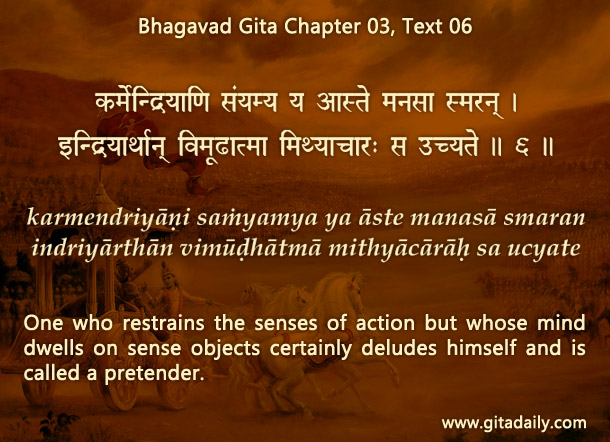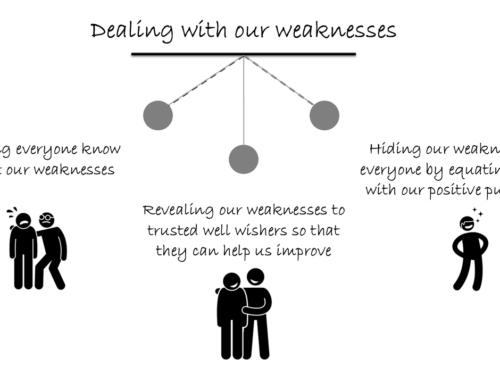As long as we hide behind ourselves we can’t challenge ourselves
Suppose we are afraid of some aggressor and choose to hide behind some protector. Later, if our protector starts oppressing us, we won’t be able to challenge them because we have made ourselves dependent on them.
A similar dynamic applies in our inner world. We all face troubles and threats from the world outside of us. To protect ourselves, we often craft an image of ourselves as being tough. For example, if we fear betrayal by people around us, we might craft a public image of being cynical, hard-hearted and uncaring. While this image may protect us from heartbreak, it will also suppress our heart from growing and flourishing. If we are hiding behind that macho image, we will not be able to lower our guard and express our vulnerability even to people who truly care for us and whom we want to come closer to.
When enemies face each other, both brag about their strengths and conceal their weaknesses and wounds. When loved ones meet each other, however, they need to appropriately reveal their weaknesses and wounds so that treating and healing can take place.
The same principle applies to our moral flaws too. If we live in a morally demanding social circle, we might put on an appearance of being upstanding to be respected, or at least to not be rejected. But while concealing our moral weaknesses is sometimes necessary, we need to simultaneously work on rectifying those flaws. Otherwise, the Bhagavad-gita (03.06) cautions that we will end up not just deceiving the world but also deceiving ourselves, believing that we are morally healthy when we aren’t.
We need to avoid becoming chronically dependent on our image by not hiding behind ourselves. Instead, we need to go beyond building the image to building the substance. How? By regularly challenging ourselves adequately and thereafter changing ourselves appropriately.
Think it over:
- Why do we sometimes hide behind ourselves?
- Why is revealing our vulnerabilities sometimes necessary?
- How do you hide behind your image? What can you do to change that?
***
03.06 One who restrains the senses of action but whose mind dwells on sense objects certainly deludes himself and is called a pretender.
To know more about this verse, please click on the image
Explanation of article:
https://www.youtube.com/watch?v=NdsiWKIFSPs&feature=youtu.be
Podcast:



Awesome, no words.
Amazing insight, Prabhuji. It just helped me understand and accept people, who appear strong and self-sufficient, yet are lacking something at their core.
Happy to be of service.
Haribol inspiring